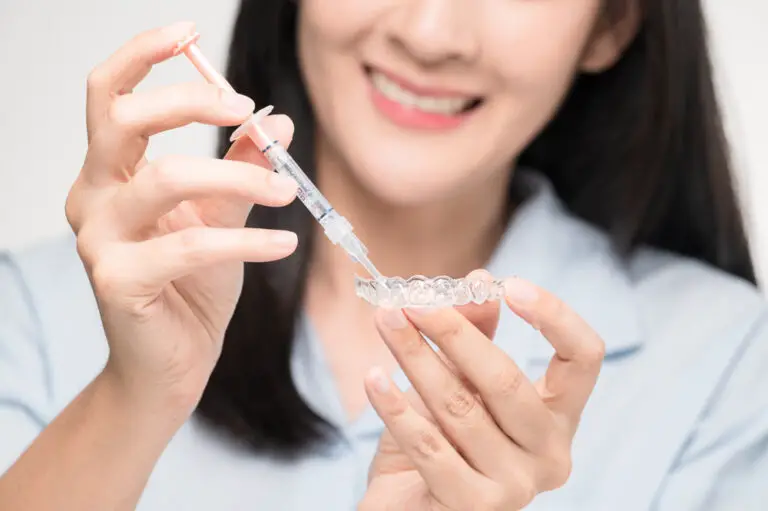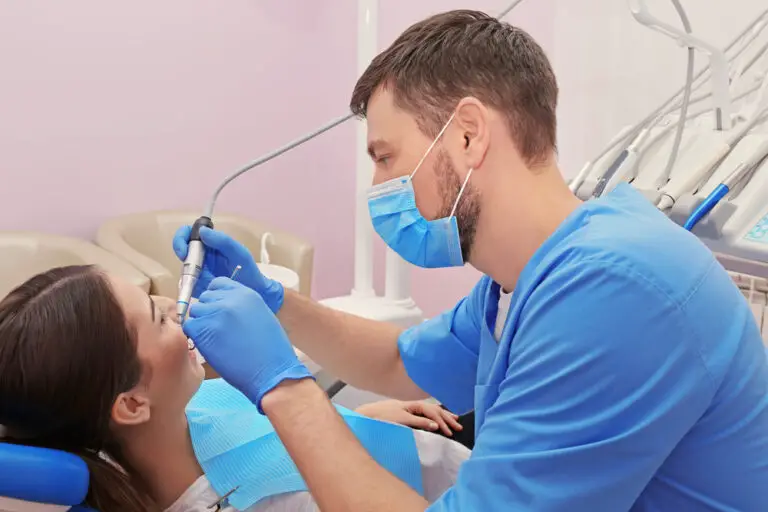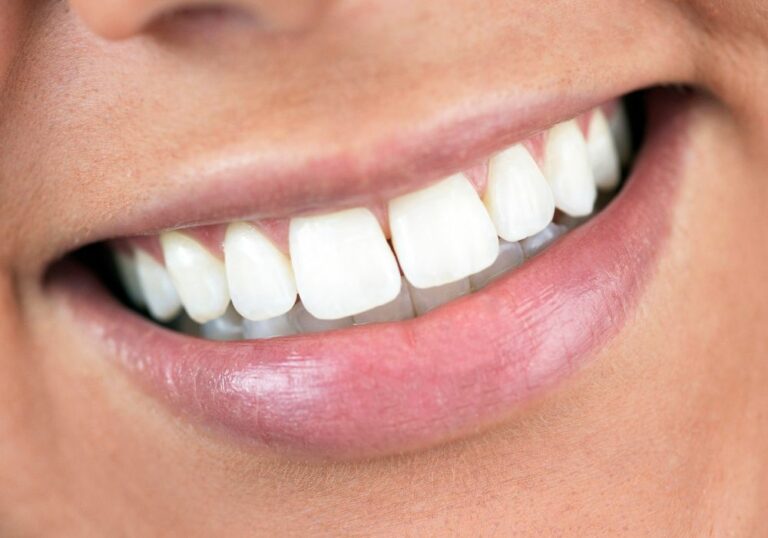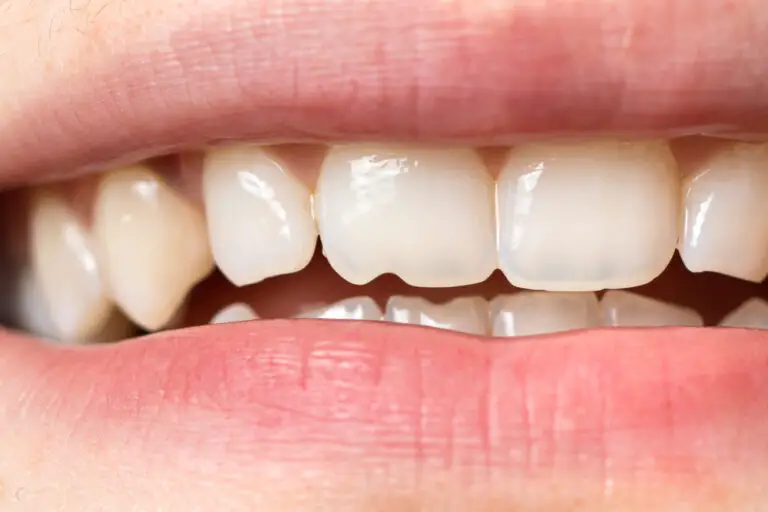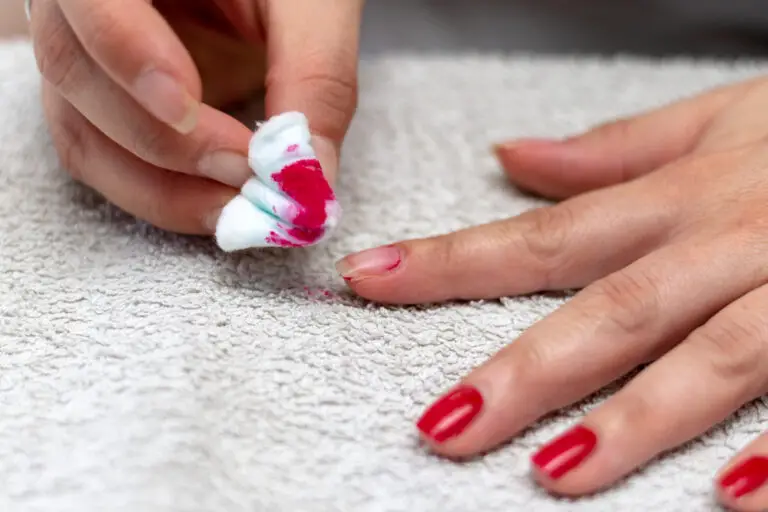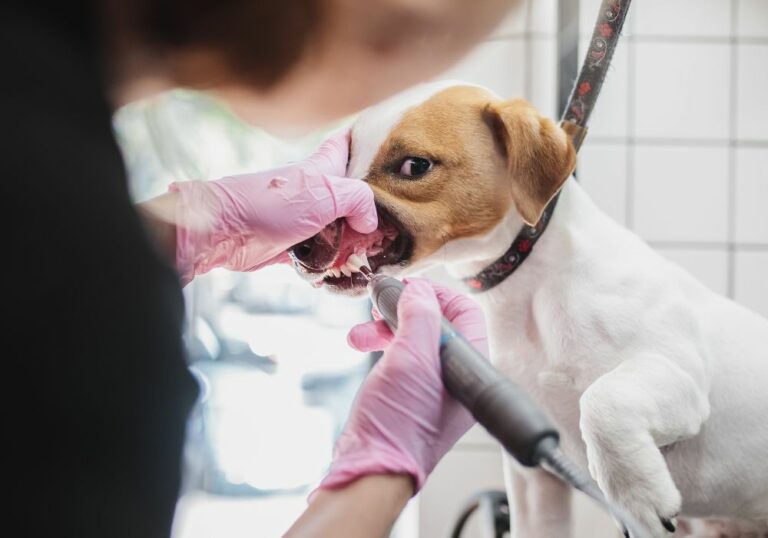Attention deficit hyperactivity disorder (ADHD) is a common neurodevelopmental disorder characterized by persistent patterns of inattention, hyperactivity and impulsivity that impair functioning and development (1). It is estimated to affect around 5% of children and 2.5% of adults worldwide.
One of the most commonly reported daily living struggles for individuals with ADHD is maintaining proper oral hygiene and sticking to a regular teeth brushing routine. In fact, multiple studies have confirmed that those with ADHD report brushing their teeth less frequently and for shorter duration than people without ADHD (2). They also demonstrate more plaque build-up, bleeding gums during brushing, and overall worse oral health outcomes.
This article will take an in-depth look at the reasons why those with ADHD often struggle to adequately and consistently brush their teeth, the impacts on their oral health, and strategies that can help overcome obstacles.
Executive Function Impairments
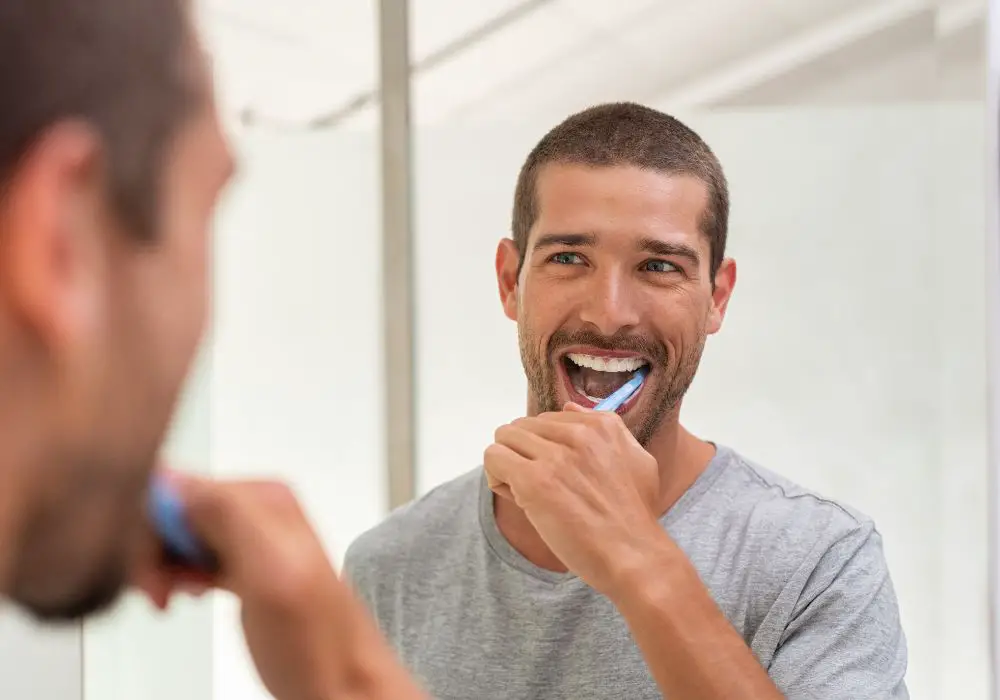
At the core of many ADHD-related difficulties with teeth brushing are deficits in “executive functioning”, which refers to the set of cognitive skills that allow us to effectively manage tasks and self-regulate behavior (3). Those with ADHD exhibit impairments in many aspects of executive functioning including:
Working Memory
ADHD is linked to reduced ability to hold information in mind and manipulate it to guide behavior. People may intend to brush their teeth but as soon as the thought leaves their mind, they forget. Out of sight, out of mind.
Organization & Planning
Difficulties with organization and planning make it hard to gather all the necessary materials in one place and map out the required steps. Disorganization undermines habit formation.
Task Initiation
Many with ADHD chronically struggle with procrastination and repeatedly putting off less pleasurable tasks. Getting started with brushing can feel like an insurmountable hurdle.
Sustained Attention
ADHD comes with easy distractibility that sabotages someone’s ability to stick with mundane tasks from start to finish without being sidetracked. People often start brushing but don’t complete the full 2 minutes.
Impulse Control
The impulsiveness characteristic of ADHD frequently leads to skipping steps, abruptly stopping an activity when it becomes boring, or completing tasks hastily without care. This impairs thorough, careful brushing.
Time Perception
Those with ADHD often have a distorted perception of time, also known as “time blindness”. 30 minutes may feel like 5 minutes, causing people to underestimate how long it’s been since they last brushed.
Task Monitoring
ADHD also involves decreased ability to track progress on tasks and spot errors. People may miss areas when brushing or not realize they are doing an incomplete job.
Emotion Regulation
Struggles managing frustration and impatience may lead those with ADHD to quit brushing when it becomes tedious or uncomfortable. They have a lower tolerance for activities requiring sustained mental effort.
Motivation
ADHD brains are wired to prioritize immediate rewards over future consequences due to impairments in dopamine signaling. The benefits of preventing long-term dental disease are not sufficiently motivating.
In combination, these executive functioning deficits make it extremely challenging for someone with ADHD to remember to brush, begin brushing, stick with it, do a thorough job, and repeat this consistently over time.
Role of Routine & Structure
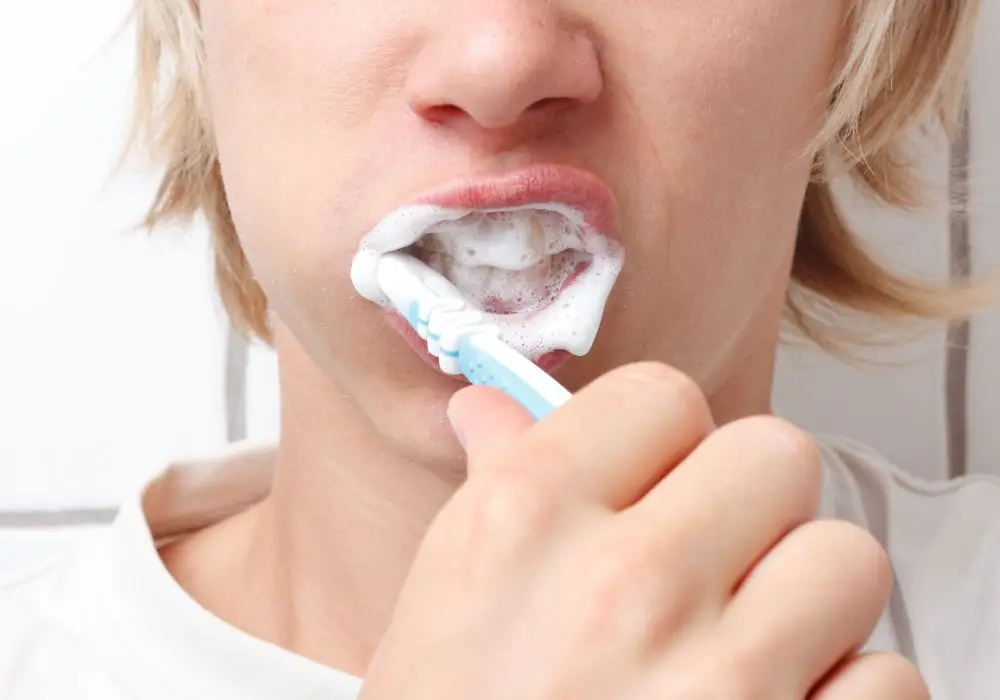
On top of executive functioning impairments, ADHD symptoms are often worsened by a lack of consistent structure and routine in a person’s daily life. Research shows the importance of regular timing and patterns in establishing healthy oral hygiene habits (4). But ADHD inherently makes it harder for individuals to stick to schedules and develop habits and rituals.
ADHD symptoms tend to fluctuate day-to-day, making it difficult to implement steady routines. Frequent disruptions from inconsistent sleep, variable effects from ADHD medications, shifting priorities and distractions undermine habits like teeth brushing. Maintaining structure requires significant sustained mental effort that taxes ADHD brains.
A disorganized living environment also hampers regular oral hygiene. ADHD in adulthood is associated with messy and cluttered homes that lack organization. When bathrooms or bedrooms are chaotic, it introduces obstacles to completing oral hygiene seamlessly. Missing or misplaced toothbrushes, toothpaste or floss undermines consistency.
Motivation Difficulties
The brain’s impaired dopamine signaling in ADHD also produces problems with motivation that impact forming oral hygiene habits (5). Dopamine is a neurotransmitter crucial for motivation, reward-seeking and achievement of goals. But those with ADHD are less motivated by consequences and less responsive to rewarding stimuli.
The day-to-day rewards of brushing one’s teeth well are minimal. Rather, it prevents adverse dental outcomes years down the road. But this lacks immediacy that ADHD brains crave. Making matters worse, the process of brushing itself is rarely pleasurable. It is tedious, repetitive, and uncomfortable. This makes it an inherently unrewarding task.
The chronic struggles with motivation in ADHD help explain why teeth brushing consistency suffers greatly, even when someone understands the long-term risks of poor oral hygiene. The anticipated chore itself discourages the formation of regular routines.
Comorbid Conditions
Research shows that a significant portion of individuals with ADHD have one or more co-occurring mental health or neurodevelopmental conditions (6). Some examples include:
- Anxiety disorders
- Autism spectrum disorder
- Depression
- Oppositional defiant disorder
- Bipolar disorder
- Substance abuse disorders
Each of these conditions can separately contribute to executive functioning challenges and hinder the development of positive oral hygiene habits. For instance, autism may involve sensory issues that make tooth brushing uncomfortable and anxiety can worsen forgetfulness.
The more conditions an individual has in addition to their ADHD, the more severe and pervasive their executive functioning deficits tend to be. This exponentially increases barriers to regular teeth brushing.
Risks to Oral Health
The combined impact of these various factors is that individuals with ADHD exhibit measurably worse oral hygiene habits, dental health status and oral health-related quality of life compared to their peers (7).
Specifically, research shows that those with ADHD have:
- Increased dental plaque
- More bleeding gums during brushing
- Heightened risk of gingivitis and periodontitis
- 2.9 times higher rate of dental caries
- More decayed, missing or filled teeth
- Poorer self-rated oral health
These poor oral hygiene habits inevitably increase adverse dental outcomes in those with ADHD across their lifespan, including more frequent cavities, tooth decay, gum disease, need for dental procedures and potential tooth loss (8). Developing the capability for regular effective brushing and flossing is critical to avoid these consequences.
Strategies for Brushing with ADHD
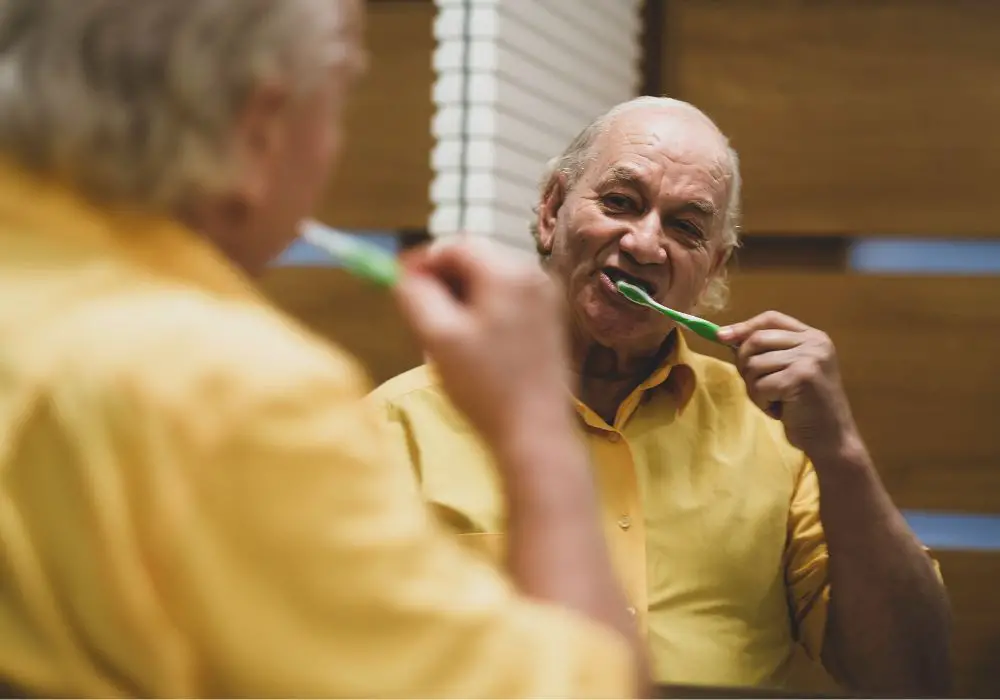
Given the many obstacles ADHD presents to oral hygiene habits, adapting methods and environments can help build routines. Useful tactics include:
External Motivating Reminders
- Phone alarms/alerts for brushing times
- Wall posters with brushing instructions
- Motivational notes on bathroom mirror
- Stickers, magnets or whiteboard in bathroom for tracking
- Brush buddy who provides reminders and accountability
Reducing Obstacles
- Keep supplies readily available – floss, toothbrush, toothpaste, mouthwash
- Eliminate need to search for materials
- Buy duplicates for multiple locations like bathroom and bedroom
Creating Routines
- Link brushing to an existing habit like showering
- Set specific consistent times, e.g. morning and before bed
- Use a calendar or planner to pre-schedule brushing times
Making It More Engaging
- Play music, podcasts or TV to stay occupied
- Use a fun timer like sand-hourglass or app with progress bar
- Electric toothbrush with built-in timer and pulsations
- Flavored toothpaste to boost sensory experience
Employing External Structure
- Checklist with brushing steps on wall
- Tracking charts or app to check off each time
- Brushing partner for accountability and support
- Dental cleanings every 3-6 months
Adapting Technique
- Set a phone timer for 2 minutes total
- Segment mouth into quadrants and focus on each for 30 seconds
- Hold brush with non-dominant hand for increased concentration
- Use fidget toys like stress balls to occupy hands while brushing
Building Gradually
- Start with just 30 seconds or brushing just at night
- Slowly increase time and frequency over weeks
- Celebrate small successes!
Working on ADHD First
- Take ADHD meds to improve focus, memory and motivation
- Get therapy to develop coping skills
- Treat comorbid conditions like anxiety that worsen symptoms
Positive Reinforcement
- Reward system for regular brushing with small prizes or treats
- Focus on adding rewards, not removing for poor habits
- Verbal praise and encouragement from supporter
Professional Support
If struggles persist despite various efforts, consulting dental and medical professionals can help. A dentist can monitor oral health status, provide specialized products (e.g. prescription strength fluoride toothpaste) and offer tailored oral hygiene advice. A doctor may recommend adjusting ADHD medications, pursuing cognitive behavioral therapy for executive functioning deficits or treating comorbid conditions. With professional support and the right adaptations, it is possible for those with ADHD to master daily oral hygiene habits and maintain dental health.
Conclusion
In summary, ADHD poses multifaceted challenges to the development of regular, effective teeth brushing routines. Deficits in executive functioning, establishing structure, and motivation along with comorbid conditions commonly undermine oral hygiene habits. But a range of environmental adaptations, behavior strategies and professional treatment can help those with ADHD overcome these obstacles and achieve good dental health. With persistence and positivity, mastering this everyday self-care task is within reach.
References
- American Psychiatric Association. (2013). Diagnostic and statistical manual of mental disorders (5th ed.). https://doi.org/10.1176/appi.books.9780890425596
- Blomqvist M et al. Oral health, dental anxiety, and behavior management problems in children with attention deficit hyperactivity disorder. Eur J Oral Sci. 2006; 114(5):385-390.
- Barkley RA. Executive functions: What they are, how they work, and why they evolved. Guilford Press; 2012.
- Gropper RJ, Kleine P. The importance of oral health in long-term care. JAMDA. 2018;19(3):242-247.
- Volkow ND et al. Motivation deficit in ADHD is associated with dysfunction of the dopamine reward pathway. Mol Psychiatry. 2011;16(11):1147-1154.
- Instanes JT et al. Adult ADHD and comorbid somatic disease: A systematic literature review. J Atten Disord. 2018;22(3):203-228.
- Blomqvist M et al. Dental caries in children with attention deficit hyperactivity disorder: a population-based study. Eur Arch Paediatr Dent. 2016;16(4):381-386.
- Aminabadi NA et al. The impact of parental supervision on tooth brushing of children with attention-deficit/hyperactivity disorder. Med Oral Patol Oral Cir Bucal. 2016;21(5):e565.

